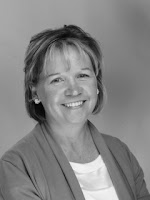 |
| Michelle Mills, Interim CEO |
April was a busy month for Rural Health in Colorado. CRHC and ClinicNET hosted the 13th Annual Forum. This year, we set a record for attendance, with 134 attendees representing 35 of the 52 rural health clinics. We gathered in support of our mission to provide quality healthcare throughout rural Colorado. The primary focus of the Forum remains on finding ways to improve basic business operations such as billing, coding, cost reporting, emergency preparedness and quality improvement. This year, however, we looked toward the future by addressing subjects such as payment reform, data collection and how rural communities can most effectively connect within the current environment.
Colorado was also the host site of the NRHA Conference. NRHA continues to focus on prospective federal spending cuts and the disproportionate impact on rural healthcare. The rural healthcare safety net is facing a potential loss of hundreds of millions of dollars, programs, and access to care. It is more important than ever to engage in the conversation and to make your voice heard. You can do this by showcasing your efforts to improve rural healthcare in your community.
A great way to do that is by sharing information about your own patient safety and quality improvement efforts. Currently 93% of CAHs are signed up to voluntarily submit data to Hospital Compare, and 50% have signed up for the Medicare Beneficiary Quality Improvement Project (MBQIP). MBQIP allows the Health Resources and Services Administration’s Office of Rural Health Policy to access aggregate data submitted by CAHs to Hospital Compare. This proactive and visionary program is perfectly aligned with CRHC’s Improving Communication and Readmissions Project (iCARE). By sharing this valuable information, you demonstrate the quality work you provide to your community and help establish benchmarks for comparison with other CAHs. Programs such as these, with a community focus, demonstrate how working together helps solve our healthcare challenges. If you haven’t had the opportunity to get involved in this program, contact me at mm@coruralhealth.org and I’ll get you started.
As we head into these uncertain times, CRHC remains a strong advocate for rural healthcare. We are dedicated to serving rural Colorado by providing a unified voice and by helping you demonstrate your great work. Rural communities band together when times are tough and in Colorado you do that better than anyone else.
It is my honor to serve you as Interim CEO of the Colorado Rural Health Center.


